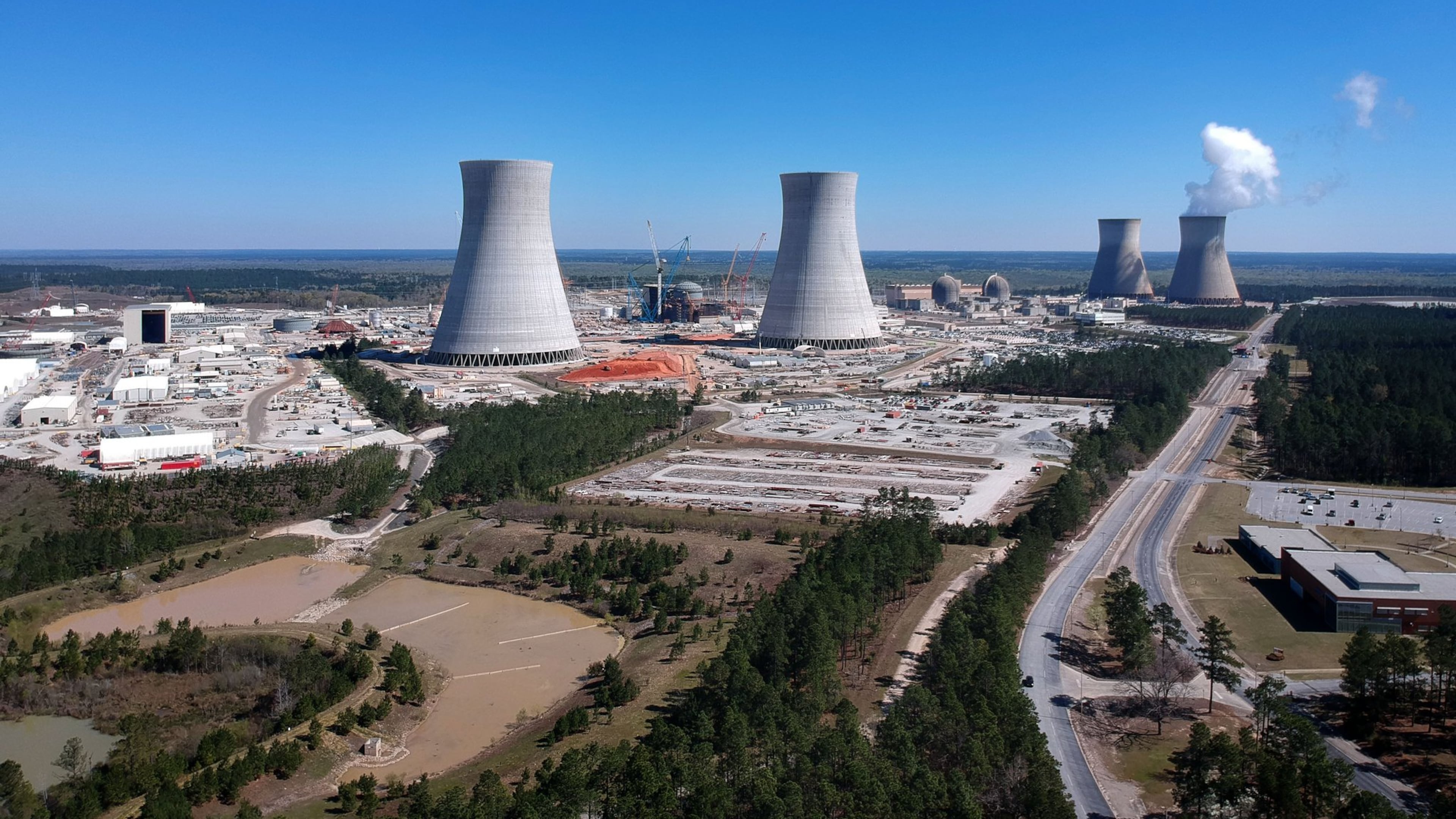Georgia Power discloses more Vogtle nuclear delays, big extra costs

Georgia Power’s parent, Southern Co., announced Thursday yet another delay in its completion of the nuclear expansion of Plant Vogtle and said its share of the costs have increased by nearly half a billion dollars.
Georgia Power customers could see larger increases in monthly electric bills if the company ultimately seeks reimbursement for the higher costs on the massive project south of Augusta. But such a move would require approval from the state’s Public Service Commission.
Southern not only pushed back its timeline for completing the first of two new reactors — something it has done repeatedly this year alone — but also announced a delay for the second reactor. And it cautioned that further delays on both are possible, reeling off a litany of potential challenges to complete a project that was supposed to have been finished years ago and for billions of dollars less.
Another worry: that federal nuclear regulators could continue to increase scrutiny of the project to fix quality problems. The company said in a regulatory filing that “various design and other licensing-based compliance matters” have arisen or may arise that, if not resolved, could lead to additional delays and costs.
As for the latest $460 million in rising costs, the company said it would cover the expense by taking a charge against its profits, a $343 million hit after taxes. The move sparked lower profits for Southern compared to the same quarter a year earlier. The company didn’t say whether it eventually will seek approval from state regulators to recover those costs from its customers. But in a filing it said there is a “significant level of uncertainty” about its ability to get such a full recovery.
Georgia Power Chief Executive Officer Chris Womack, in an interview with The Atlanta Journal-Constitution on Thursday, highlighted the completion this month of a crucial round of testing at the site.
The company is “very excited about the future and where we are headed, and very confident that we are going to get this done. We’re going to get it done right,” Womack said.
Just a few months ago, Atlanta-based Southern had been sticking by its predictions that the first reactor would be in operation this November, with the second a year later. Now, it projects the second quarter of 2022 for the first, and the first three months of 2023 for the last reactor. In each case that is three or four months later than what it had said in May and reasserted again last month.
The two new reactors were originally slated to be in operation in 2016 and 2017, respectively.
“It would be unreasonable for us to say that there is no possibility of further delays, but what we have done is put a lot of our learnings into this latest estimate,” Dan Tucker, Georgia Power‘s chief financial officer, said in an interview Thursday.
Tucker said in the last few years the company has taken about $1.4 billion in after-tax charges against corporate profits, due to Vogtle cost increases. In so doing, “I think we are acknowledging that the company is likely to bear a significant portion of responsibility for those costs.”
Kurt Ebersbach, a senior attorney at the Southern Environmental Law Center, which represents some organizations opposed to customers paying for Vogtle’s excesses, said he believes the power company will seek PSC approval to collect billions of dollars in overruns from customers.
The company’s latest predictions for Vogtle’s schedule come closer to what PSC staff and independent advisors to the state have been predicting for the first reactor. Still, a key advisor has projected substantially higher cost increases still to come and a later completion — at least June of 2023 — for the second reactor.
The construction costs of the Vogtle expansion have not yet been rolled into the bills of Georgia Power customers. But for years, customers have paid fees for a portion of both the project’s financing costs and the company’s profits on it.
By the time the project is completed and produces electricity, it’s estimated that the average residential customer will have already paid over $850 toward it. Then bills are expected to rise higher to cover all “prudent” and “reasonable” construction costs and company profits, which rise as allowed costs rise.
The project is led by Georgia Power and co-owned with not-for-profit partners, including affiliates of Georgia electric cooperatives and municipal utilities, whose customers are also likely to be hit by the rising costs. The expansion is expected to provide a stable source of electricity, without emissions tied to climate change, sufficient to power more than 500,000 homes and businesses.
The two new reactors — being built near two existing ones at Vogtle — would be the first commercial nuclear reactors built from scratch in the United States in the last 30 years.



